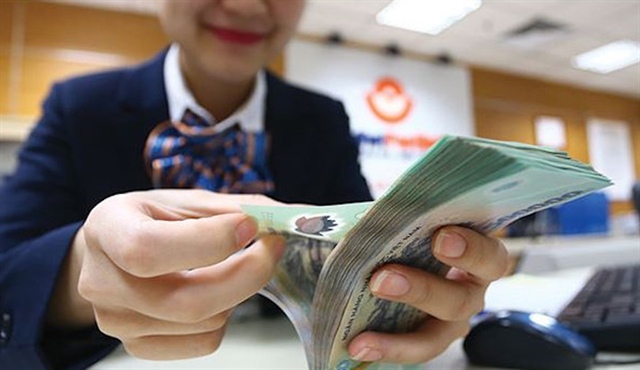C.bank urges tightened credit management in high-risk fields
C.bank urges tightened credit management in high-risk fields
Banks should exercise caution when making large loans to customers or financing large-scale projects to minimize risks.
Commercial banks are asked to strengthen credit management in high-risk areas such as securities investment and real estate.

The central bank decides to expand the credit room to address the lack of capital in the economy. File photo |
The Governor of the State Bank of Vietnam (SBV) Nguyen Thi Hong issued a directive on December 22 on the management of credit and interest rates of the banking sector in the upcoming period.
According to Hong, banks should be particularly cautious about providing a high volume of credit to customers or large projects. “Each bank should stay active in ensuring the liquidity and meeting the credit demand of the economy,” she said.
In early December, the SBV announced its decision to expand the credit growth target to 15.5-16% from its previous estimate of 14% for this year amid rising demand for capital among businesses and people. Credit expansion of 1.5-2 percentage points would mean an additional injection into the economy of between VND156 trillion and VND200 trillion ($6.5 billion to $8.3 billion).
Hong, however, urged the capital should be channeled into priority economic fields, such as agricultural production, exports, operation of small and medium enterprises, supporting industries, or hi-tech development.
Other fields qualified for getting loans include infrastructure investment, consumption, or real estate projects with high feasibility and viable financial return.
The SBV’s directive also stressed the necessity for banks to continuously streamline their operation to save costs and lower lending rates.
As a result, interest rates quoted by banks on medium and long-term loans have risen to 15-16% per annum for individual customers and 11-12% on short-term loans for corporates.
The struggle of local businesses in securing loans and growing concern over the shortage of working capital in the economy have prompted the Vietnam Banks’ Association (VNBA) to hold a meeting last week with representatives of the banking sector to find a solution. In the meeting, SBV’s Vice Governor Dao Minh Tu called for banks to lower their capital mobilization rate and continue to provide preferential loans for businesses during the difficult economic period, for which they have agreed to keep the mobilization rate at 9.5% per annum.



















